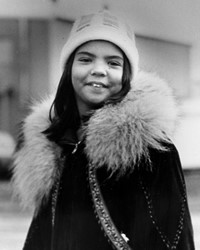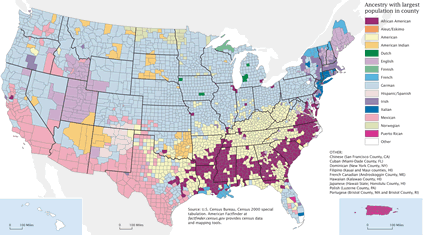The North Alaskan Eskimo people are part of the larger Inuit cultural and linguistic family, traditionally speaking dialects of the Inupiaq language. Their homeland spans the northern coast of Alaska, from the Bering Strait to the Beaufort Sea, encompassing tundra, coastal plains, and Arctic seas. Their population is almost evenly divided between the United States and Canada, where they are likely to be found in the Yukon Territory.
Historically, they were expert hunters, whalers, and fishers, adapting ingeniously to one of the world's harshest environments. Subsistence practices centered around seals, caribou, walrus, and whales, with deep knowledge of the land and ice. Contact with Russian traders, European explorers, and later American whalers and missionaries in the 19th century brought lasting cultural change, introducing Christianity, trade goods, and new forms of governance and education.
Today, many North Alaskan Eskimo communities continue to balance modern life with traditional values. Settlements are often small, closely knit, and reliant on both modern economies and subsistence hunting and fishing. Snowmobiles, boats, and modern housing coexist with ancient knowledge of sea ice, weather, and wildlife. Community events often center around subsistence seasons, cultural festivals, and family gatherings.
Challenges include limited access to healthcare, high costs of living, and economic dependence on oil-related industries and government employment. Despite these pressures, cultural pride remains strong, and efforts to teach Iñupiaq language and traditions to younger generations are growing.
Traditionally, the Inupiat practiced an animistic belief system in which all elements of the natural world were imbued with spirits. Harmony with these spirits was maintained through rituals, taboos, and the use of amulets. Ceremonies were closely tied to the hunting cycle and life events such as birth and death.
In the late 19th century, Christian missionaries—particularly Swedish Evangelicals, Episcopalians, and Presbyterians—introduced Christianity, which gradually became dominant. Today, many Inupiat identify as Christian, though elements of traditional spirituality may still be present in cultural practices.
The North Alaskan Eskimo communities need ongoing support for language preservation and cultural revitalization, ensuring that traditional knowledge and the Iñupiaq language are passed on to future generations in meaningful, community-led ways. They need access to improved education, healthcare, and mental health services that are culturally sensitive and available in remote Arctic settings.
Economic opportunities that are sustainable and compatible with traditional values are also needed, especially as climate change alters hunting grounds and community stability.
Spiritually, there is a need for the complete Bible and discipleship and outreach material to be translated into the North Alaskan Eskimo heart language. There is a need for indigenous Christian leaders to shepherd their communities. There is also a great need for more Eskimo evangelists and mission workers to reach the many lost North Alaskan Eskimo with the gospel.
Pray for a great spiritual awakening among the North Alaskan Eskimo; the majority follow ethnic religion.
Pray for a faithful translation of the complete Bible in their heart language. Pray for the faithful translation of more discipleship and outreach materials in their heart language, including the JESUS Film.
Pray for the hearts of the true North Alaskan Eskimo believers to be stirred with love and compassion to reach their people with the gospel.
Pray for those involved in syncretism to wholeheartedly turn to Christ and establish their new identity and heritage in Him, alone.
Finally, pray that God would raise up indigenous Christian leaders to shepherd their communities for God's glory.
Scripture Prayers for the Eskimo, North Alaskan in Canada.
Alaska Native Language Center, University of Alaska Fairbanks
Smithsonian Arctic Studies Center
Alaska Native Heritage Center
Wikipedia: Inupiat and North Slope Borough, Alaska
| Profile Source: Joshua Project |












